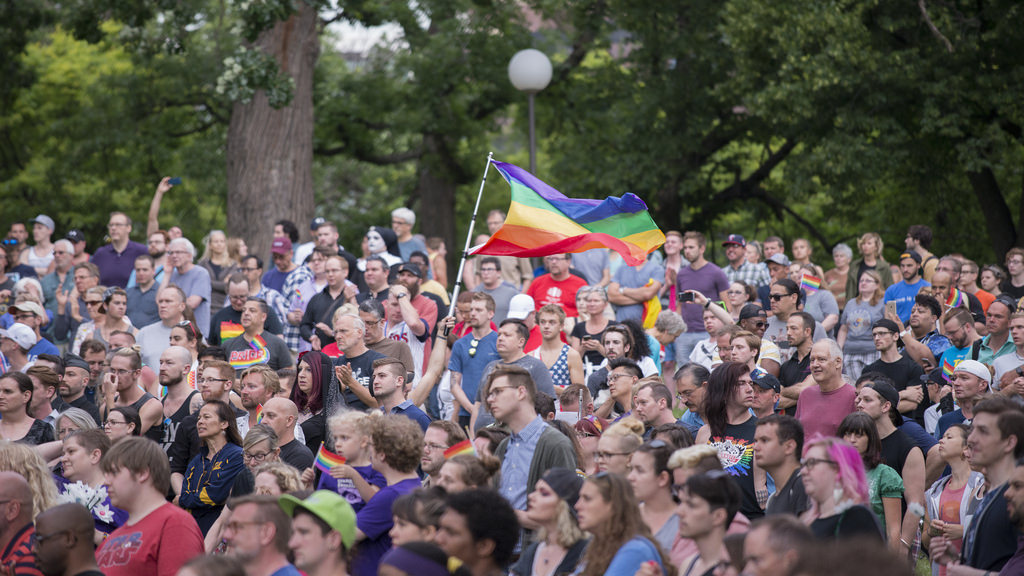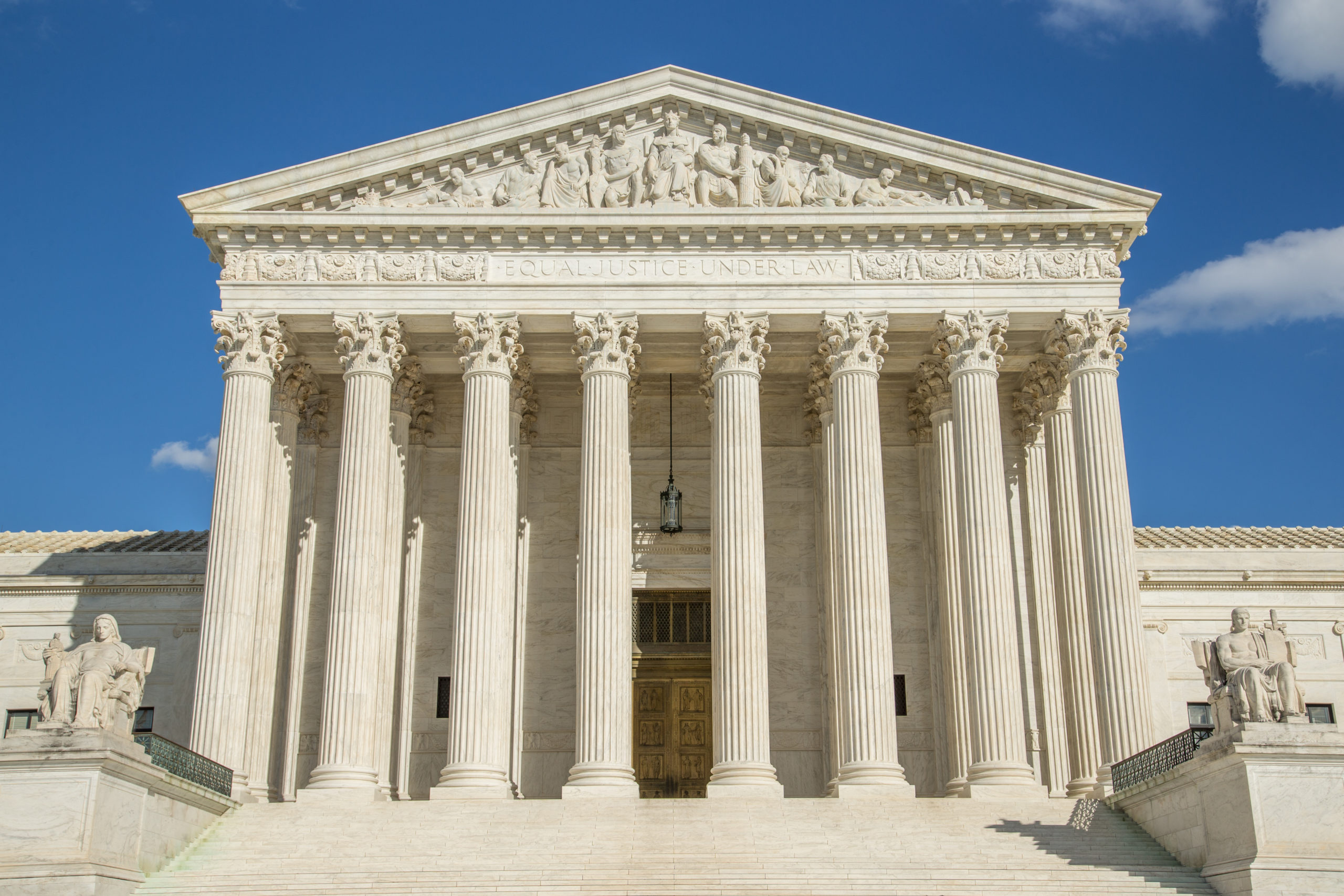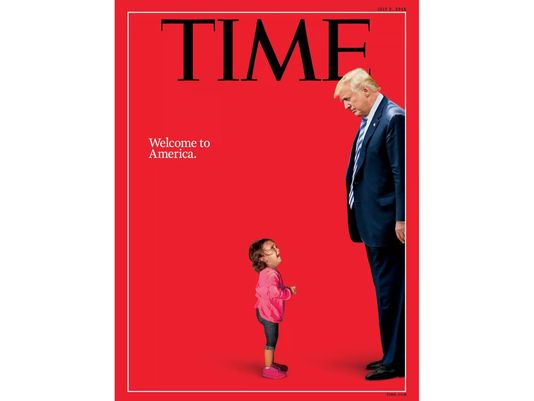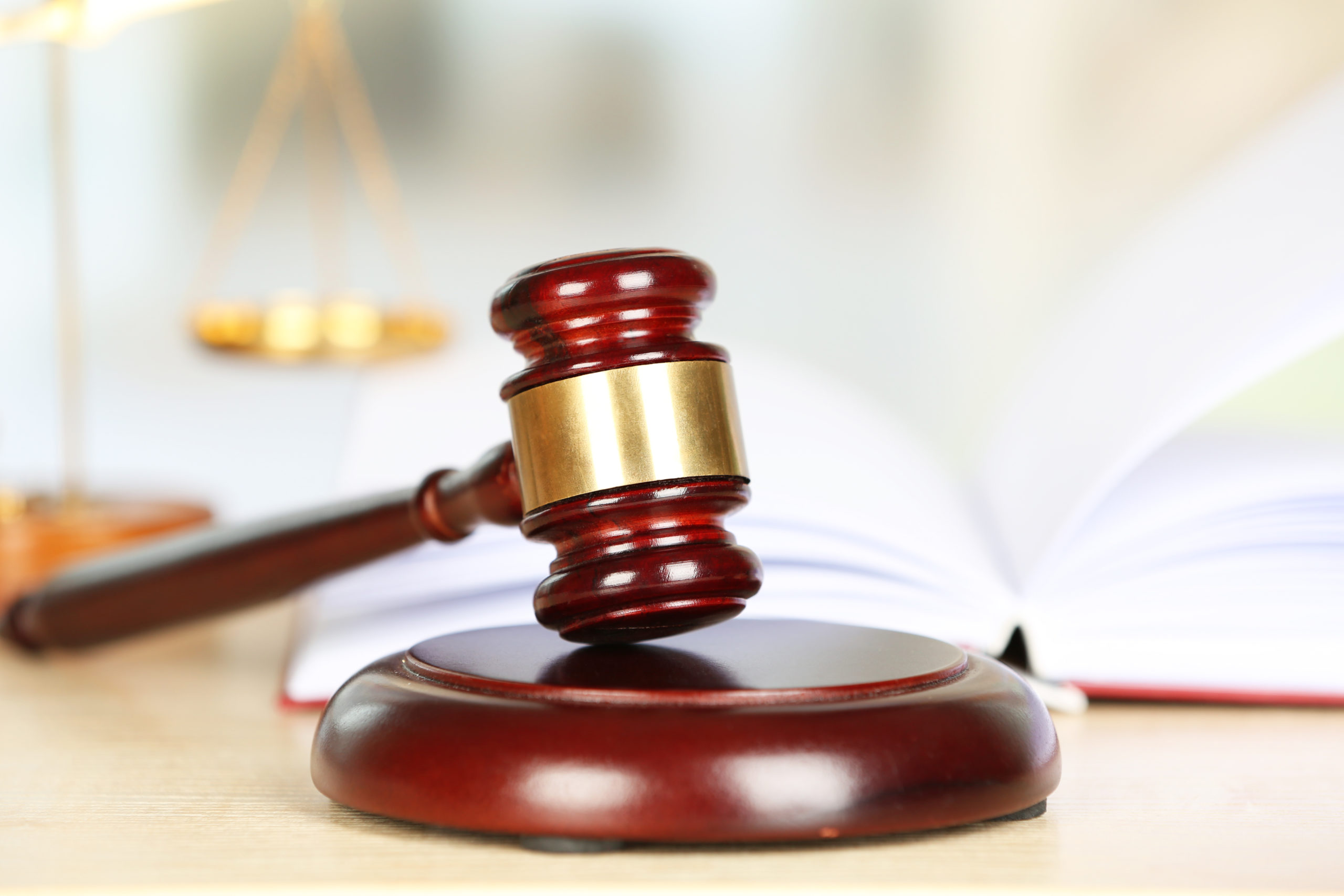Abortion rights, women of color, and LGBTQI+ people are under attack. Pledge to join us in fighting for gender justice.
Celebrating My Immigrant History and Queer Identity
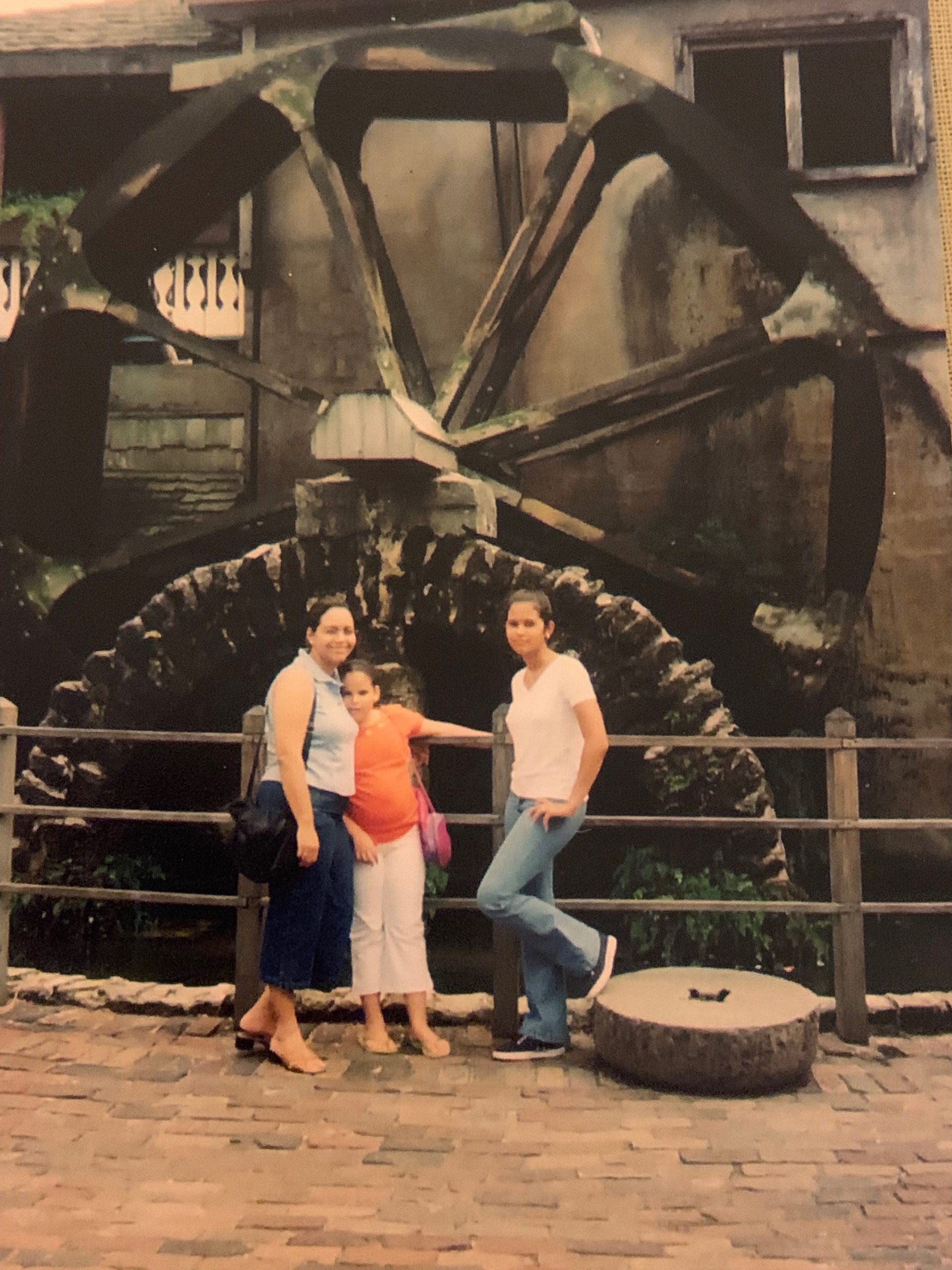
June is Immigrant Heritage Month and Pride Month. Much like the lives of queer or immigrant folks, these months intersect in ways that make us uniquely us, carrying both our stories of immigration and our relationship with our identity.
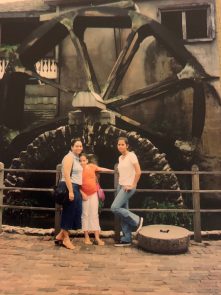
I immigrated to the United States with my mom when I was 10 years old.
My mom had known she eventually wanted to move to Florida – where her sister and brother had already relocated – but she wasn’t sure when was the right time. One summer, my mom and I went to visit them in Jacksonville and, of course, pay a visit to Disney World and Universal – a trip my mom promised if I got all A’s on my report card. We spent the week riding roller coasters and eating greasy food with my cousins.
One Saturday morning after days of amusement parks, my mom decided to take a pregnancy test. She had been trying to get pregnant since I was born – and it had now finally happened. My mom made the decision then and there to move to Jacksonville and got my dad to rent out our Santo Domingo apartment and pack up our lives.
On my first day of school, my uncle followed my school bus, making sure I got on and off without a hitch. Since I struggled with my accent, I was placed in a remedial English class. In the spring, I transferred to another school and was placed in the gifted program. My schools apparently didn’t know what to do with this 10-year-old math whiz with curly hair and “R”’s that sounded like “W”’s.
Eventually, my family moved to our own house, and I was given a scholarship to attend a private Catholic high school.
I was out of my depth.
Growing up in Jacksonville I perceived a weird mix of old Southern money and beautiful beaches lined with confederate flags. As an immigrant child, I wasn’t conscious of racial dynamics in the U.S., so I begged my mom for brand new Sperrys (boat shoes that are definitely not for boating) every school year. I straightened my afro-hair, a process that took at least two hours every couple of days. I saved my money and bought an $80 Vera Bradley backpack with my name on it. I wanted to look the part of a white, Southern debutante. The backpack was hideous.
I dated a white guy my junior year in high school. We talked for days on the phone, the receiver’s white-hot battery burning my ear. After meeting his parents over dinner at Texas Steakhouse, they decided I was not a good influence on him. So he ended things via AIM Messenger. I was sad, but not that sad. Until I heard the rumor that he started the next day.
He claimed that we broke up because I was a lesbian.
During our brief relationship, I confided in him that I was questioning my sexuality. This was just after the scandal of another classmate coming out as gay. She was a Eucharistic Minister for the school Church – a coveted position. After the deacon found out she was gay, he quietly told her to quit, and we stopped seeing her in the front of the altar passing out host and wine. I felt bad for her – but I also felt embarrassed, because I knew there was something about her public shaming that implicated me.
The worst part was not that the boy told everyone I was a lesbian. The worst part was having to correct him with my current understanding of what I was. People would stop me in the hall, and I could see the question rising in their eyes. I wouldn’t even let them say it, I simply blurted: “I’m bi, it’s okay.” This was still the time when “gay” was used to mean “bad” or “stupid,” and I definitely didn’t want to be gay.
Being shoved out of the closet was hard on my relationship with my family.
It’s something I never hid from my parents, but I never shared it explicitly with them either. Being outed at school made it hard for me to manage my identity with my parents in the quiet way that made sense to us. I knew my parents love me unconditionally, and I didn’t need or want to have an emotional and confusing conversation to prove that. For some, enthusiastic and unconditional acceptance is something they need and can achieve from their parents; but for me, a quiet and subtle acceptance is enough – more than I could hope for from my traditional, immigrant, Latino, Catholic parents.
I joke around now, telling my mom, “You know I’m not straight, right?” and she dismisses it with a “don’t ruin the mood” comment. My parents instilled in me a sense of confidence and respect for myself that made it easier to accept who I was without apologizing. But I can’t pretend like their subtle shame didn’t affect me. Two weeks ago, I finally took the plunge and wrote my mom a letter coming out as bisexual. To my surprise, the news didn’t destroy our relationship – but strengthened it. She was supportive and accepting in a way I didn’t think was possible. We still haven’t talked on the phone since, but I am hopeful we will soon. And I know my immigration and coming out story is one of privilege.
Many LGBTQ immigrants are not as lucky as I am – especially under this Administration.
LGBTQ immigrants are under attack. In just over a year, two trans women (that we know of) have died while being detained in ICE facilities. Roxana Hernandez was a transgender woman from Honduras who was seeking asylum in the U.S. because of violence against trans women back home. Roxana died in ICE custody last year of health complications, due to the subhuman treatment by ICE detention centers (cold rooms, no access to necessary healthcare, and refusing food). One year later, Johana Medina Leon, a transgender woman from El Salvador, died shortly after being transferred from an ICE facility to the hospital following complaints of chest pain. During her seven weeks in ICE detention, she frequently asked for medical assistance as her health deteriorated but was denied
And it’s not just those in ICE custody who are under attack. Earlier this month, the Trump-Pence administration’s State Department violated long-respected core U.S. policy that children born outside the U.S. but within a marriage containing at least one a U.S. citizen are also U.S. citizens by denying citizenship to a child of a same-sex married couple. Andrew and Elad Dvash-Banks had twins with the help of a surrogate located in Canada. Their children, Aiden and Ethan, were born four minutes apart. Aiden is biologically related to Andrew, who is a U.S. citizen; while Ethan is biologically related to Elad, who is an Israeli citizen.
The State Department denied citizenship to Ethan because his biologically related parent, Elad, is not a U.S. citizen. It is a dramatic departure from established policy for the State Department to require a child born outside the U.S. to have biological ties to the U.S. citizen parent to obtain citizenship, and it has disturbing implications for queer families.
The Dvash-Banks family sued the State Department and won an order from a judge that the Government issue a passport for Ethan. But the Justice Department has now appealed the case, leaving the Dvash-Banks family unsure of what happens next.
This Pride and Immigrant Heritage Month, it’s important to lift these stories up together.
While each person’s story is uniquely theirs, there are often similar struggles tied together by racist, anti-immigrant, and anti-LGBTQ oppression that permeates this country. We must all continue to share our stories. To all the chubby, curly-haired girls with a thick accent and weird feelings about your sexuality: you are not alone.


